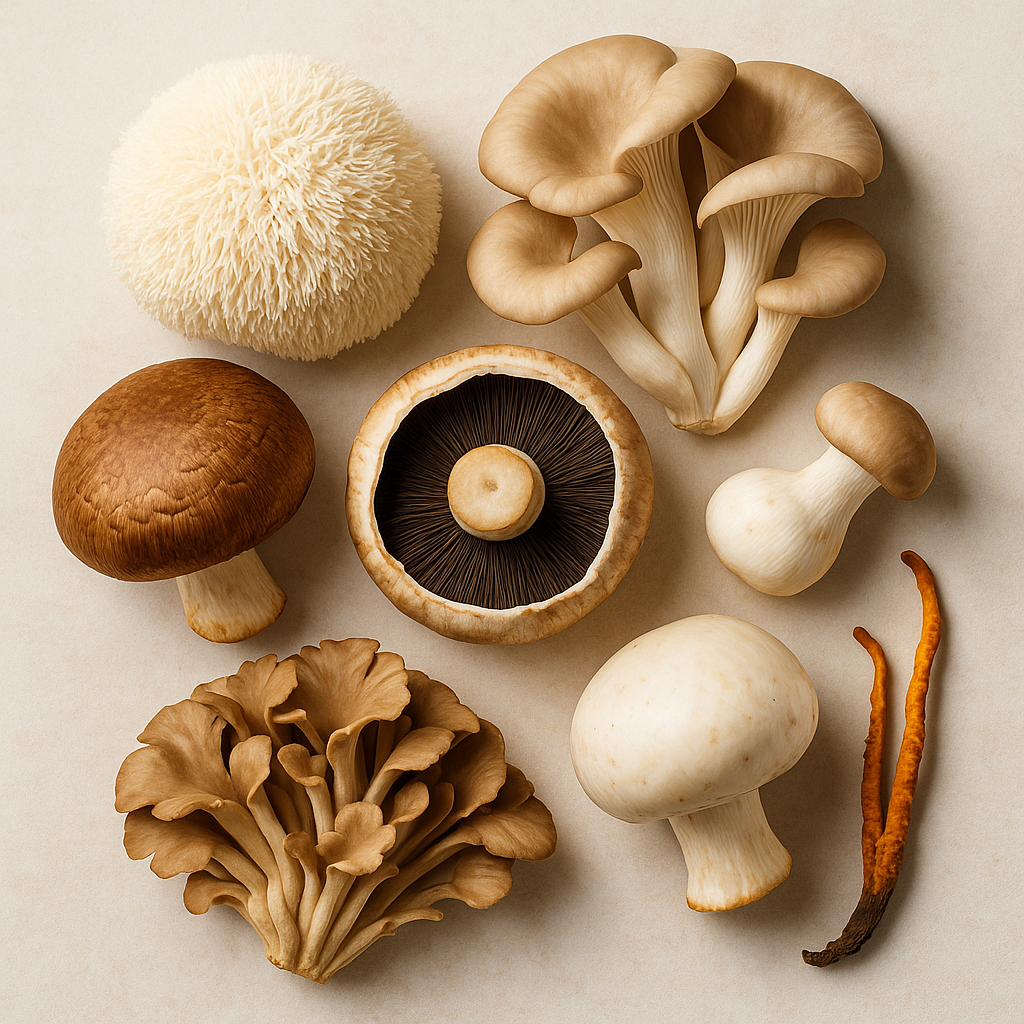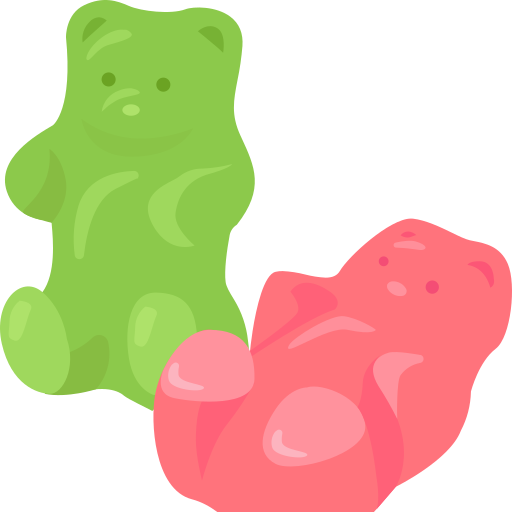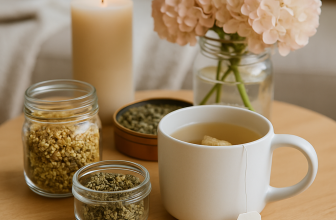
Mushrooms have held a special place in cultures around the world for thousands of years — not just for their earthy flavors, but also for their powerful benefits and connection to nature. From ancient traditional medicine to modern kitchen staples, mushrooms continue to earn recognition for their role in supporting health, enhancing meals, and grounding us in the rhythms of the natural world.
Whether you’re drawn to mushrooms for their potential wellness properties or simply love adding them to your favorite dish, these fascinating fungi are more than meets the eye.
The Many Faces of Mushrooms
Mushrooms come in thousands of varieties, but the ones most people encounter fall into three broad categories:
- Culinary mushrooms: Like button, cremini, portobello, shiitake, and oyster. These are used for their taste and texture in cooking.
- Functional mushrooms: Such as reishi, lion’s mane, chaga, and cordyceps. These have been used in traditional wellness practices for their supportive properties.
- Wild mushrooms: Found in nature, often prized by foragers. While some are edible and highly valued, others are toxic — which is why knowledge and caution are essential when gathering mushrooms in the wild.
Nutritional Benefits of Edible Mushrooms
Despite their humble appearance, mushrooms are packed with nutrients. They are low in calories, fat-free, and full of important compounds that contribute to overall well-being. Some of the key benefits include:
- Rich in antioxidants: Mushrooms contain compounds like selenium and ergothioneine that help protect cells from oxidative stress.
- Support for the immune system: Varieties like shiitake and maitake have been shown to support immune function.
- Vitamin D source: Certain mushrooms naturally produce vitamin D when exposed to sunlight, making them a plant-based option for this vital nutrient.
- Gut health: The fiber in mushrooms helps promote healthy digestion and a balanced gut microbiome.
Many edible mushrooms also contain B vitamins, potassium, and beta-glucans, making them a small but mighty addition to a balanced diet.
Functional Mushrooms and Modern Wellness
Beyond the kitchen, functional mushrooms are gaining popularity in the world of natural wellness. Often consumed in powder, capsule, or tea form, these fungi are used for their subtle, cumulative effects on the mind and body. Here are a few examples:
- Lion’s Mane: Known for its potential to support focus and cognitive clarity. Often used by those looking to enhance productivity or brain health.
- Reishi: Sometimes referred to as the “mushroom of immortality,” reishi is valued for its calming properties and role in supporting stress resilience.
- Chaga: A powerful antioxidant source traditionally used to support immune balance and energy.
- Cordyceps: Often included in blends for stamina, endurance, and respiratory support.
These mushrooms aren’t quick fixes, but when used regularly as part of a holistic lifestyle, they offer gentle support for overall wellness.
Simple Ways to Use Mushrooms Daily
Whether you’re cooking with fresh mushrooms or adding functional ones to your routine, here are a few easy ways to incorporate them into daily life:
- Sautéed with garlic and herbs: A flavorful side dish or topping for toast, pasta, or rice bowls.
- Blended into soups and stews: Add depth and nutrition to broths and warm meals.
- Mixed into smoothies or coffee: Functional mushroom powders often blend well into hot drinks or wellness elixirs.
- Used in teas or tinctures: Reishi and chaga are commonly steeped or extracted for gentle daily support.
- Added to adaptogenic blends: Look for mushroom-infused drink mixes or snack bars that support energy and balance.
You don’t have to commit to a full wellness routine — even one small daily addition can build into lasting benefits over time.
Mindfulness Through Mushrooms
More than just a food or supplement, mushrooms can also be a pathway to mindfulness and appreciation of nature. Growing your own mushrooms at home — or simply observing how they grow in shaded, hidden corners of the natural world — invites a slower, more intentional rhythm.
Even the act of preparing mushrooms in the kitchen can be meditative: cleaning them gently, slicing their unique shapes, and watching them transform as they cook.
A Symbol of Connection
Across cultures, mushrooms have been seen as symbols of transformation, renewal, and the mystery of the natural world. They grow quietly in the dark, breaking down organic matter and returning nutrients to the earth. In many ways, they reflect our own cycles — growth, rest, resilience, and regeneration.
Whether you’re enjoying them on your plate, in your tea, or as part of your wellness toolkit, mushrooms remind us that some of the most powerful gifts from nature come in humble forms.






